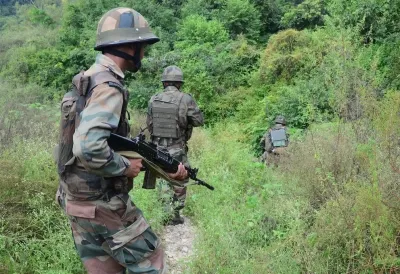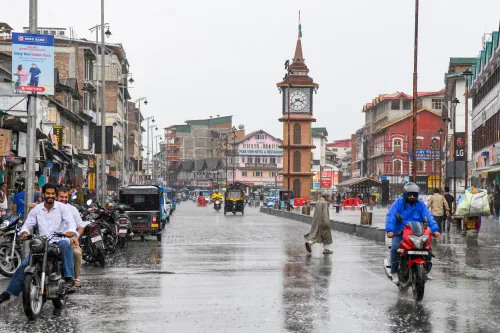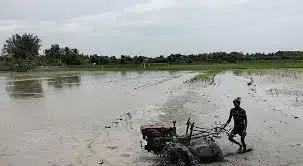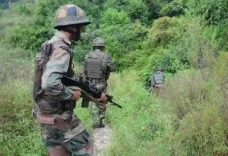Is Suspension of IWT a Strategic Weapon Against Pakistan?

Synopsis
Key Takeaways
- India has the right to suspend the Indus Water Treaty.
- Suspension can impact Pakistan's agriculture and power generation.
- International treaties can allow unilateral withdrawal under specific conditions.
- India's military operations are a response to terrorism.
- Strategic use of water resources is a potential tactic in conflicts.
New Delhi, May 15 (NationPress) Brigadier Vijay Sagar Dheman (Retd), a notable defence analyst, articulated on Thursday that India possesses the justified authority to utilize the suspension of the Indus Water Treaty (IWT) as a strategic tool against Pakistan, emphasizing that no entity can hinder New Delhi in this endeavor.
In response to the brutal terror attack in Pahalgam on April 22, India initiated a series of tactical measures against Pakistan, which included the suspension of the IWT. Furthermore, India commenced 'Operation Sindoor,' aimed at high-value terror hideouts within Pakistan and Pakistan-occupied-Kashmir.
On May 10, a ceasefire understanding was established between India and Pakistan, after which Islamabad sought the removal of the IWT suspension.
While speaking to IANS, Brigadier Dheman mentioned, "During the CCS meeting on April 20, one of the decisions reached was to suspend the Indus Water Treaty, followed by planning retaliation for the Pahalgam massacre."
"The suspension of the IWT led to a halt in the sharing of water data that was previously conducted daily. We also began filling our Baglihar Dam and Salal Dam. Consequently, the water level of the Indus River in Pakistan dropped significantly, posing a threat to their crops and affecting the water levels of their dams, including Tarbela Dam and Diamer-Bhasha Dam, which impacted electricity generation," he elaborated.
"We then declared the opening of all our gates for desilting, which resulted in a flood situation for Pakistan. Consequently, when floods struck Punjab, Pakistan endured substantial losses," he added.
Addressing concerns regarding India's ability to unilaterally withdraw from an international treaty, Brigadier Dheman stated, "Critics within India argue that this is an international treaty, mediated by the World Bank, and question how we can exit it unilaterally. Under the Vienna Convention on the Law of Treaties, 1969, Articles 60 and 62 clearly state that in cases of certain incidents, unilateral withdrawal is permissible."
"Who can prevent us from exiting? Pakistan will incur damage. Therefore, I assert that we can wield this treaty as a weapon. We have merely shown Pakistan a glimpse of our potential," the retired Army officer concluded.









